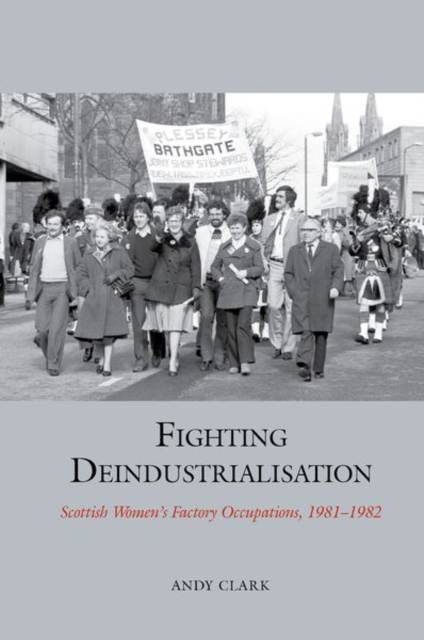
- Retrait gratuit dans votre magasin Club
- 7.000.000 titres dans notre catalogue
- Payer en toute sécurité
- Toujours un magasin près de chez vous
- Retrait gratuit dans votre magasin Club
- 7.000.0000 titres dans notre catalogue
- Payer en toute sécurité
- Toujours un magasin près de chez vous
Description
In Fighting Deindustrialisation, Andy Clark outlines and examines one of the most significant and under-researched periods in modern Scottish labour history. Over a fourteen month period in 1981 and 1982, as Scotland suffered the effects of the accelerated deindustrialisation of its economy, three workforces refused to accept the loss of their jobs. The predominantly women assembly workers at Lee Jeans (Greenock), Lovable Bra (Cumbernauld), and Plessey Capacitors (Bathgate) were informed that their multinational employers had taken the decisions to close their plants. At each site, a battle was fought against capital movement, corporate greed, and unfair jobloss. The workers occupied their factories and refused to vacate until their demands were met and closure avoided. At all sites this objective was achieved; none of the factories completely closed following the women's occupations.
In this book, these occupations are analysed together for the first time, through a range of analytical frameworks from oral history, memory studies, industrial relations scholarship, and deindustrialisation studies. In his extensive examination, Clark argues that the actions of 1981-82 should be considered as one of the most significant periods in Scotland's history of deindustrialisation. However, the public memory of 1981-82 is precarious; Fighting Deindustrialisation begins the process of incorporating women's militant resistance within academic and popular understandings of working-class activism in later 20th century-Scotland.Spécifications
Parties prenantes
- Auteur(s) :
- Editeur:
Contenu
- Nombre de pages :
- 264
- Langue:
- Anglais
- Collection :
- Tome:
- n° 19
Caractéristiques
- EAN:
- 9781802077117
- Date de parution :
- 01-01-23
- Format:
- Livre relié
- Format numérique:
- Genaaid
- Dimensions :
- 156 mm x 234 mm
- Poids :
- 544 g

Les avis
Nous publions uniquement les avis qui respectent les conditions requises. Consultez nos conditions pour les avis.






